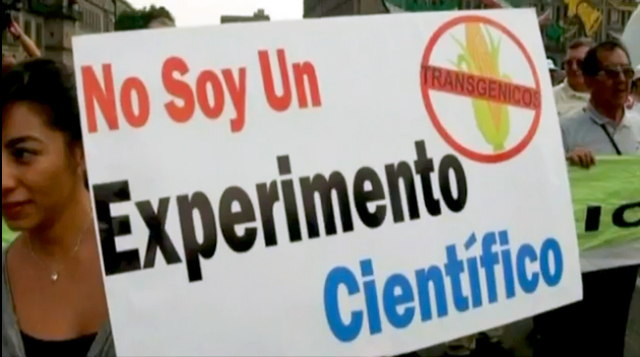Another court in Mexico has ruled against GMO crops. A ban against genetically modified soybeans in the Campeche region of Mexico was upheld last week by the Second District Court. This follows the decision by two other judges in Mexico last year (2013) to keep in place bans on GM corn.

Could “Made in Mexico” become the new quality standard in organic agriculture for the future? Less than 1% of the population in the United States is involved in agriculture today, where it is dominated by biotech firms heading more and more to GMO seeds, supported by the U.S. government. Mexico, by contrast, still has over 13% of its population in agriculture, and much of that is still small-scale traditional farming. This is a smaller amount post NAFTA (North American Free Trade Agreement), which opened the door for cheap subsidized crops from the U.S. to be imported to Mexico, putting many farmers out of work who could not compete with these cheap subsidized commodity crops from the U.S.
If judges in Mexico continue ruling against biotech companies and their GMO products, Mexico could become a major exporter to the U.S. of high-quality non-GMO organic products. Almost all of the corn supply in the U.S., for example, has been contaminated by GM corn (even certified organic corn), while hundreds of heirloom varieties still exist in Mexico.
Mayans Win Legal Battle to Ban GM Soya in Mexico’s Campeche Region
Following a ban on the cultivation of GM Maize in Mexico in 2013, the Campeche region of the country has now prohibited the growing of GM Soybeans following a two year court battle.
The Second District Court in Campeche ruled this week in favor of three Mayan communities from the Hopelchén township who had taken on the Ministry of Agriculture, Livestock , Rural Development, Fisheries and Food ( Sagarpa) and the Secretariat of Environment and Natural Resources ( SEMARNAT).

In a landmark ruling, the Court granted in favor of the Pac -chen and Cancabchen communities in Hopelchén and determined that the effects of the ruling it applied to all municipalities affected by the permit for GM soybean cultivation in Campeche. Sagarpa now has an obligation to ensure that no GM Soybeans are planted in the state.
Source:
http://healthimpactnews.com/

Post a Comment